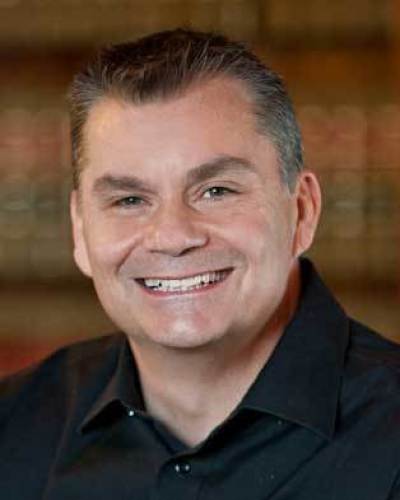Are you a theologian or a geologian?
The former Catholic scholar Thomas Berry is credited with coining (or redefining) the term: geologian.

While he was flying back from an environmental conference in the Seychelle Islands, Berry describes looking down at the Nile River at 30,000 feet and realizing he was no longer a theologian, but a geologian. He explains that the word best illustrates his belief that all human beings emerged out of eons of Earth’s geological and biological evolution; it was his way of reinventing humans at the species level.
At first blush, you may think Berry is describing naturalism/atheism, but you’d be wrong. Instead, he’s advocating for what may be the oldest pagan religion — pantheism.
The quiet giant
By and large, when it comes to classifying religions, you have the big three “isms”: monotheism, pantheism and atheism. Of course, there are variants (e.g., polytheism) and other esoteric belief systems, but most will roll up under one of these umbrellas.
A lot of time is given today to discussing monotheism (Judaism, Islam, Christianity) vs. atheism, but it’s pantheism that is the quiet giant supporting many people’s worldview and, perhaps most surprisingly, impacting our culture today.
When surveys like the one done by the Springtide Research Institute find that 60% of Gen Z’ers who are not involved with organized religion describe themselves as “spiritual,” it’s normally some sort of pantheistic practice (whether they know it or not) to which they ascribe themselves. We tend to think of religions like Hinduism, Buddhism, Christian Science, Unity, Scientology, etc. when pantheism is discussed. But dramatic rises in Wicca and other similar belief systems are also included.
As a reminder, pantheism asserts that, in general, all (“pan”) is God (“theos”). This is why you will find Thomas Berry saying, “the universe is the primary referent in all human understanding,” and “our problem ... is to convert religion to the world rather than convert the world to religion.”
Wake-up call
If you think this just means people “getting in touch with nature” or some sort of benign form of yoga, meditation, etc., think again. The implications of adopting and implementing pantheistic beliefs are much larger than you might expect.
This is because, at pantheism’s core, we find the elimination of distinctives. It starts with removing the division between God and the universe, but it quickly spreads from there.
For example, in pantheism it is perfectly logical to affirm there are no differences between humans, genders, sexual preferences, and the like; everything is fluid. Our culture hasn’t moved 100% to this position yet as former NAACP leader Rachel Dolezal found out when she tried to declare herself African American (or “transracial”). But it’s likely just a matter of time.
Most devout pantheists will also uphold the idea that differences between good and evil are illusory; i.e., there is no distinction between right and wrong. Therefore, what qualifies as ‘wrong’ or the commission of a crime is fluid as well. But as C. S. Lewis said, “If you do not take the distinctions between good and bad seriously, then it is easy to say that anything you find in this world is a part of God. But, of course, if you think some things are really bad, and God really good, then you cannot talk like that.”
I could go on, but I think you get the idea of how even the implicit adoption and application of pantheistic beliefs leads to cultural chaos.
What Scripture says
Needless to say, the Bible has the strongest of warnings for those who worship the creation vs. the Creator. Romans 1:18-32 speaks about how God delivers the various confusions, delusions and anarchy we’re seeing today when people deny Him and choose to worship nature.
Further, Scripture makes clear that atheism is not where people who deny the God of the Bible end up, but rather they most often invest themselves in a false religion. To use today’s word, they become “spiritual”.
God’s Word tells us that what began at the Tower of Babel (Gen. 11) ends at Revelation 17 with the destruction of Mystery Babylon and its false religious system. Is it any surprise that we find this event immediately before the return of Christ in Revelation 19?
This being true, don’t be fooled into thinking that the stagnation of atheism and increase in people saying they are “spiritual” is a positive sign. They could just be following the path of Thomas Berry and ending up a geologian, rather than worshiping and serving our Creator as a theologian.
Robin Schumacher is an accomplished software executive and Christian apologist who has written many articles, authored and contributed to several Christian books, appeared on nationally syndicated radio programs, and presented at apologetic events. He holds a BS in Business, Master's in Christian apologetics and a Ph.D. in New Testament. His latest book is, A Confident Faith: Winning people to Christ with the apologetics of the Apostle Paul.



























